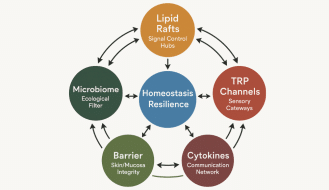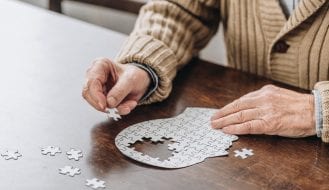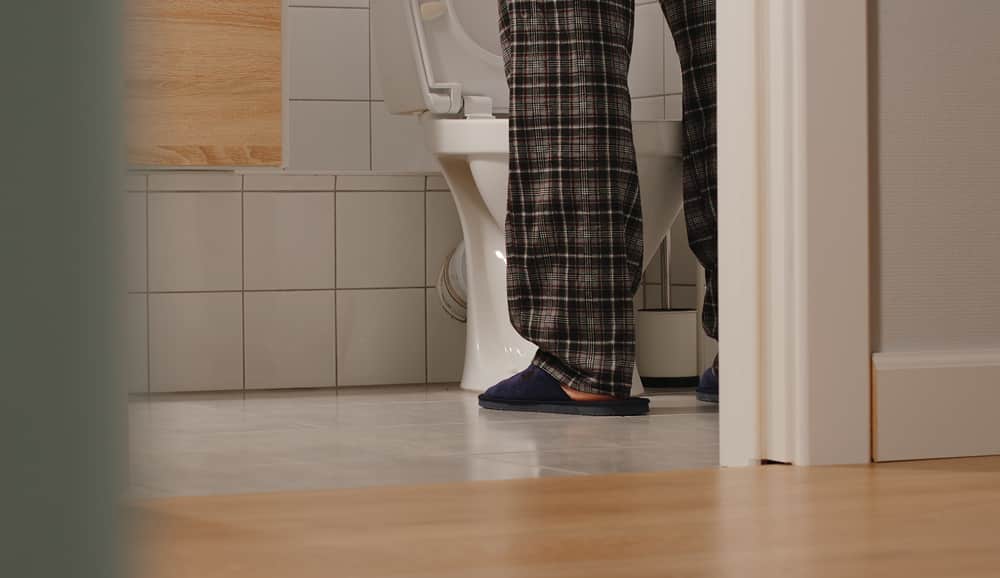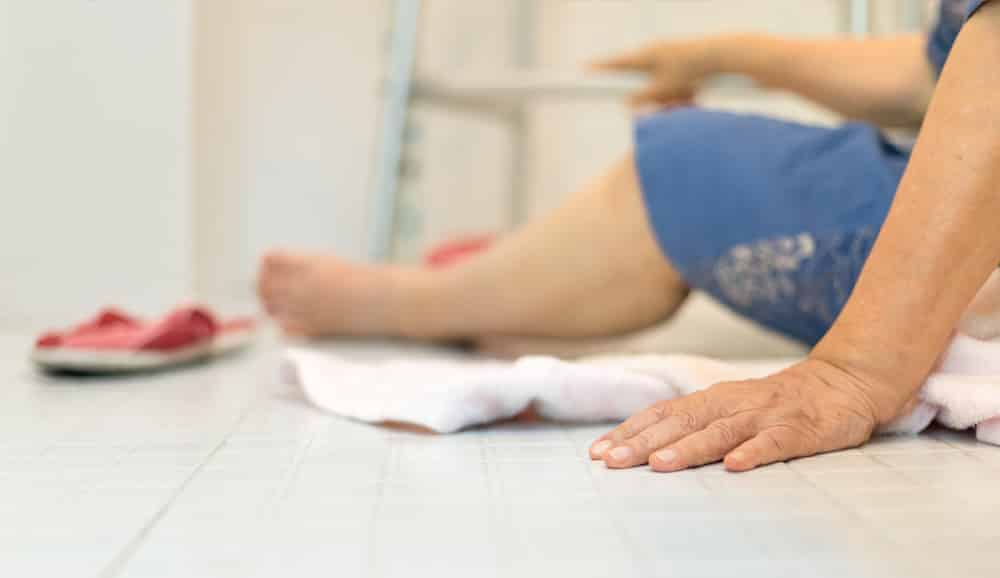Can Omega-3 with Melatonin Reduce Excessive Urination at Night?
It was a subject she normally felt too embarrassed to talk about — even with her physician. Now Harriet was so thrilled that she had to share the good news with me!
“Instead of getting up three to four times a night to tinkle, I now only wake up maybe once per night,” she explained. “Sometimes, I even sleep through to 6 am. I feel like a new person!”
What Is Nocturia?
Harriet struggled with nocturia, a condition that requires getting up to urinate at least once during the night.
Surprisingly common, nocturia impacts millions of Americans. Between 2% – 28% of people between the ages of 20 and 40 are impacted by clinically relevant nocturia, which is defined as having to void at least two times per night. For people over age 70, those numbers increase to 28% – 62% (1).
Health Issues Related to Nocturia
While nocturia often gets dismissed as a ‘mere nuisance’, it can significantly impact a person’s quality of life when experienced regularly. For many, sleep deprivation caused by nocturia symptoms can lead to associated conditions like fatigue, reduced productivity, mood disorders and impaired cognitive performance.
What’s more, a need to void at night often puts people at risk of falling and injuring themselves, especially the elderly. It’s estimated that the US healthcare system spends $1.5 billion a year on nocturia-related hip fractures alone (1)!
Nocturia Causes
While the prevalence and severity of nocturia correlate with age, frequent night-time urination shouldn’t be discounted as a normal part of aging.
This condition is typically described as a “multifactorial”, meaning that the causes of nocturia often involve a number of factors — everything from specific behaviors (like drinking too much liquid before bed) to more severe underlying health issues like cardiovascular disease, diabetes, and sleep disorders (2).
In Harriet’s case, an overactive bladder was the culprit. This is one of the well-recognized lower urinary tract problems that can cause people to wake up in the middle of the night.
Other common causes include nocturnal polyuria, which means that the body overproduces urine at night. In these cases, kidney, heart, and lung conditions can also factor in. For men, issues like an enlarged prostate can also play a part.
Research also suggests that many cases of nocturia and overactive bladders could be connected with a low grade urinary infection – something that’s not always easily detected by a traditional urine analysis (3, 4).
Which Comes First: Poor Sleep or the Need to Urinate?
Nocturia is especially complex in that even when the apparent causes are addressed, many people still get up at night to urinate (5). From a medical viewpoint, this begs the question: Is it the excessive need to void during the night that causes poor sleep, or could it be that poor sleep contributes to having to get up at night to urinate?
If it’s the latter, focusing on sleep hygiene could have big payoffs for people struggling with nocturia.
Aside from reducing person’s sleep quality, nocturia can increase the likelihood of a person falling and injuring themselves on the way to the restroom.
Natural Nocturia Treatment with Melatonin and Omega-3s
So why are we at Omega3 Innovations talking about nocturia? Well, one of the more interesting pieces of feedback that we’ve heard from customers over the years is that Omega Restore (a combination of omega-3s, melatonin, and vitamin D3) seems to reduce frequent urination at night.
Curious to see if there could be an explanation for these anecdotal reports, Bo and I delved into the research. As it turns out, there are a number of reasons why these nutrients could make a difference for people with nocturia.
The Impact of Melatonin on Nocturia
Often referred to as the “sleep hormone,” melatonin has a profound impact on our circadian rhythm. For people with certain sleep disorders, taking melatonin has been found to improve sleep quality. Since sleep disorders are strongly correlated with nocturia, it’s possible that melatonin could help improve both (6).
Melatonin has also been found to reduce smooth muscle spontaneous activity in the bladder, which might reduce the urge to urinate (6).
Studies already show that melatonin secretion is inversely associated with nocturia in older populations (7). But the question of how melatonin supplementation impacts nocturia is still relatively new. To date, only a handful of small studies have tackled the topic. While the results look promising so far, more research is needed (8, 9).
How Omega-3s Affect Nocturia Symptoms
Researchers also theorize that omega-3 fatty acids could make a difference for people with nocturia, for a variety of reasons:
Omega-3 Fatty Acids Reduce Inflammation
Research shows that inflammation often plays a major role in overactive bladders. In clinical studies where anti-inflammatory drugs (NSAIDs) were given to people with nocturia, researchers found reduced nocturia episodes and increased urinary retention.
Since omega-3s work on the same biochemical pathways as NSAIDs, researchers believe omega-3 supplements could have a similar positive effect when taken in effective doses (10).
Omega-3s Assist in Signaling Pathways
Omega-3s aren’t only critical for reducing inflammation at the cellular level; they’re also involved in communication between cells. Without enough omega-3s, the body’s signaling pathways don’t function optimally. Not only is this a major problem in the brain, but the impact can also be found throughout the body, too.
To date, at least one study has found that the signaling pathways involving omega-3s and omega-6s are often not functioning normally in older men with nocturia (11).
Omega-3s Improve Melatonin Secretion
Perhaps one of the most interesting aspects about omega-3s is that these fatty acids also appear to be deeply connected with our how our bodies produce melatonin. Animal studies show that low omega-3 intake is associated with dysfunctional melatonin secretion (12, 13). Research also demonstrates that omega-3s influence the pineal gland, which is responsible for the production of melatonin at night (14).
This interconnectedness between omega-3s and melatonin could explain the results from a 2016 study. It showed that people who ate the most fish enjoyed better sleep quality than those who rarely ate fish, and that increased omega-3 intake had a more pronounced effect on regulating the circadian rhythm (15).
Taking Control of Excessive Urination at Night
Nocturia deserves more public attention and open conversation — especially because, in many cases, it can be significantly remedied through a variety of therapies.
One of those therapies might include the combination of omega-3s and melatonin in the form of Omega Restore. Though clinical research is still in its early stages, we believe we’ll be hearing more stories like Harriet’s in the future!
For More Restful Sleep and Energy
Experience the Omega3 Innovations difference for yourself with the most effective fish oil supplement on the market.
Buy Now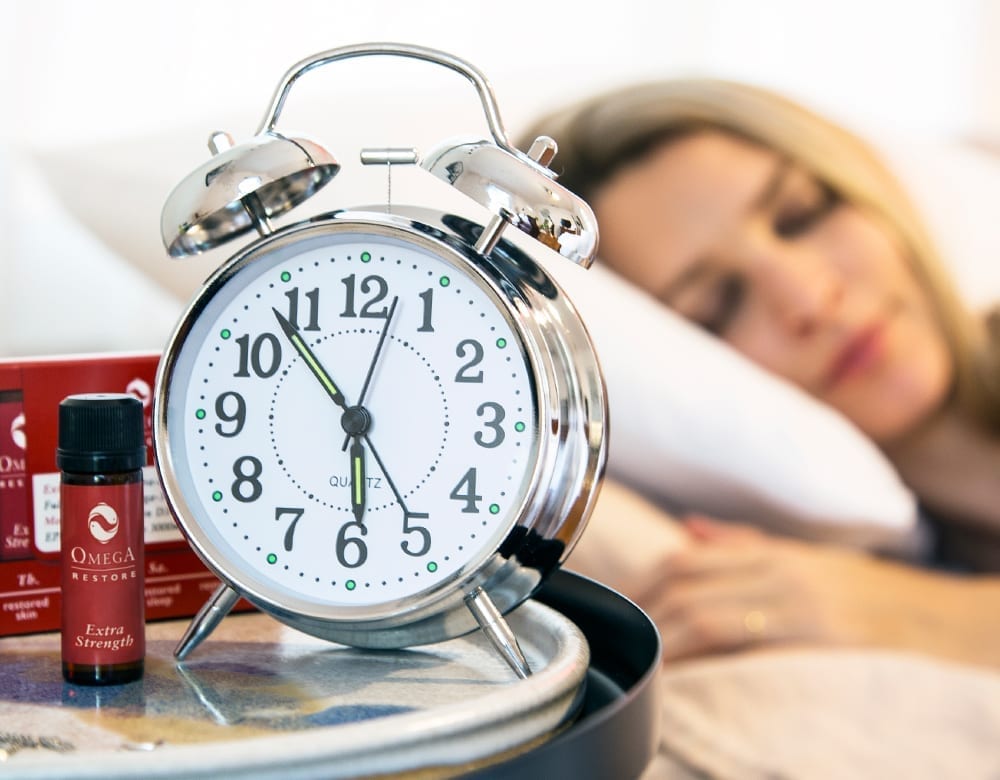
References:
1. Oelke, M. et al (2017). A Practical Approach to the Management of Nocturia. International Journal of Clinical Practice, 71(11), e13027.
2. Leslie, S.W., D’Andrea, V., Sajjad, H., & Singh, S (2019). Nocturia. StatPearls [Internet]. Treasure Island (FL): StatPearls Publishing.
3. Sorrentino, S. et al (2014). Associations Between Individual Lower Urinary Tract Symptoms and Bacteriuria in Random Urine Samples in Women. Neurourology and Urodynamics, Wiley Periodicals.
4. Wolfe, A. et al (2012). Evidence of Uncultivated Bacteria in the Adult Female Bladder. Journal of Clinical Microbiology, 50(4), 1376–1383.
5. Duffy, J. F., Scheuermaier, K., & Loughlin, K. R. (2016). Age-Related Sleep Disruption and Reduction in the Circadian Rhythm of Urine Output: Contribution to Nocturia? Current Aging Science, 9(1), 34–43.
6. Drake, M. et al (2018). Results of a Randomized, Double Blind, Placebo Controlled, Crossover Trial of Melatonin for Treatment of Nocturia in Adults with Multiple Sclerosis (MeNiMS). BMC Neurology, 18(1), 107.
7. Obayashi, K., Saeki, K., & Kurumatani N (2014). Association Between Melatonin Secretion and Nocturia in Elderly Individuals: A Cross-Sectional Study of the HEIJO-KYO Cohort. Journal of Urology, 191(6):1816-21.
8. Delgado, D. et al (2017). Protocol for a Randomized, Double Blind, Placebo Controlled, Crossover Trial of Melatonin for Treatment of Nocturia in Adults with Multiple Sclerosis (MeNiMS). BMC Neurology, 17(1), 63.
9. Sugaya, K., Nishijima, S., Miyazato, M., Kadekawa, K. & Ogawa Y (2007). Effects of Melatonin and Rilmazafone on Nocturia in the Elderly. Journal of International Medical Research, 35(5):685-91.
10. TriHealth Inc (2015). Oxybutynin and Omega-3 for OAB (Overactive Bladder). ClinicalTrials.gov.
11. Kira, S. et al (2019). Liquid Chromatography-Mass Spectrometry Identification of Serum Biomarkers for Nocturia in Aged Men. World Journal of Urology, 37(10):2199-2205.
12. Zaouali-Ajina, M. et al (1999). Dietary Docosahexaenoic Acid-Enriched Phospholipids Normalize Urinary Melatonin Excretion in Adult (N-3) Polyunsaturated Fatty Acid-Deficient Rats. The Journal of Nutrition, 129(11):2074-80.
13. Gazzah, N. et al (1993). Effect of an N-3 Fatty Acid-Deficient Diet on the Adenosine-Dependent Melatonin Release in Cultured Rat Pineal. Journal of Neurochemistry, 61(3):1057-63.
14. Catalá A (2010). The Function of Very Long Chain Polyunsaturated Fatty Acids in the Pineal Gland. Biochimica et Biophysica Acta, 1801(2):95-9.
15. Del Brutto, O.H. et al (2016). Dietary Fish Intake and Sleep Quality: A Population-Based Study. Sleep Medicine, 17:126-8.
Popular posts



Related posts
